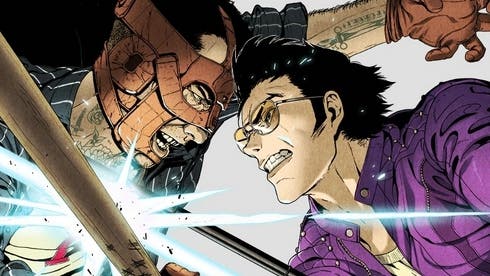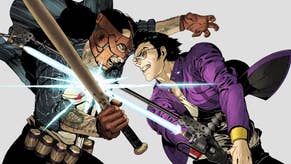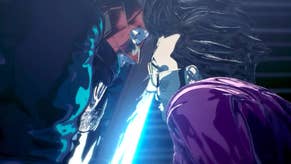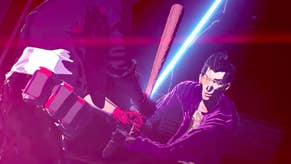Travis Strikes Again: No More Heroes review - a banal bore of a game
Pwnanism.
You know Suda51, of course. The self-styled punk developer of Tokyo's Grasshopper Manufacture, Goichi Suda's been the driving force behind offbeat classics such as Flower, Sun and Rain, Killer7 and No More Heroes. You might not know, though, that 2007's No More Heroes marked the last time he helmed a project - and this spin-off from that spunky, stylish series sees his return to the director's chair after well over a decade.
The problem is, though, that Travis Strikes Again is not very good.
Should that be a surprise? The original No More Heroes was hardly an example of polished play; scrappy and wilfully obscure, its rough edges were all part of its charm. As, too, was central character Travis Touchdown, a grubby mirror held up to the player that presented a foul-mouthed insouciant otaku who displayed an abundance of style and swagger. And what style and swagger those original games had, the fourth wall sent tumbling by knowing commentary and flashbangs of cathartic action. If they were great - and I kind of think they were - it was for their spirit rather than any of the specifics.
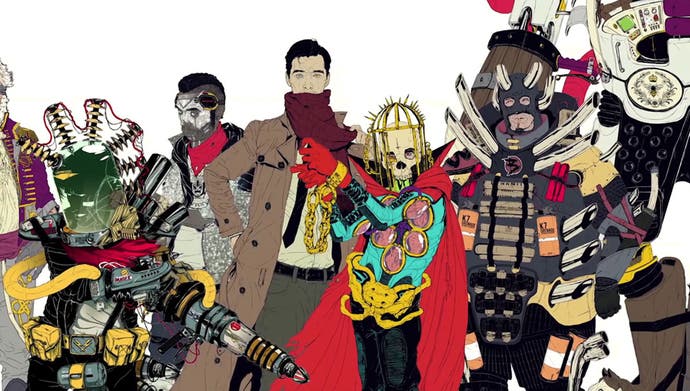
Maybe it's something to do with growing older - Goichi Suda has finally lived up to his moniker, recently turning 51 - and the strains of a decade spent guiding Grasshopper through turbulent times, but that spirit's not really there anymore. Not properly, anyway - in its place is a pale imitation of it all, a forced zaniness where the same thin 'gamer' jokes are looped ad nauseam. It's about as punk as property developer Johnny Rotten going through the motions to hawk Country Life butter.
What you're left with is the game that sits underneath all the posturing, and even Grasshopper's most ardent fans will confess this has never been its strong suit. The set-up is cute, at least - some seven years after the events of No More Heroes 2, Travis lives on the periphery, spending his days in a trailer out in the sticks playing games, when an encounter with an embittered old rival sends him into the innards of the Death Drive Mk2 - a legendary, never-released console that renders the Polybius myth into hardware.
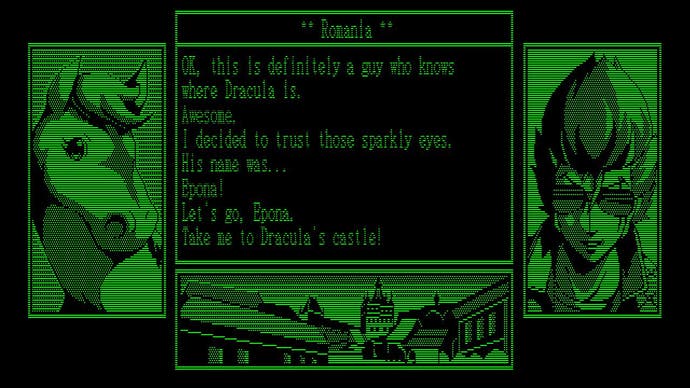
And so in Travis Strikes Again you're put through a series of games that slowly unlock as you sit through the accompanying visual novel, working through different genres and styles that riff off old classics.
Except they don't, really. The miserable thread through them all is a top-down action game that lacks any grace, a witless take on the likes of Hotline Miami and Nex Machina in what Suda's said is a tribute to indie gaming - though his interpretation of 'indie' seems to equate to low production values, and misses out on any sparkle, dynamism or just the barest sliver of an idea. Piecing each level together, and setting each level apart, are themes and mini-games that place each in their respective genres.
There's a racing mini-game in one. It's bad.
There's a puzzle layer on top of one. It's bad.
There's an element of exploration around a sinister mansion in one. It's really bad.
They're all short distractions from the protracted action scenes where you fight through mobs of dumb, indistinct hordes. There's plenty more of it, but it's essentially just as hollow as the mini-games anyway.
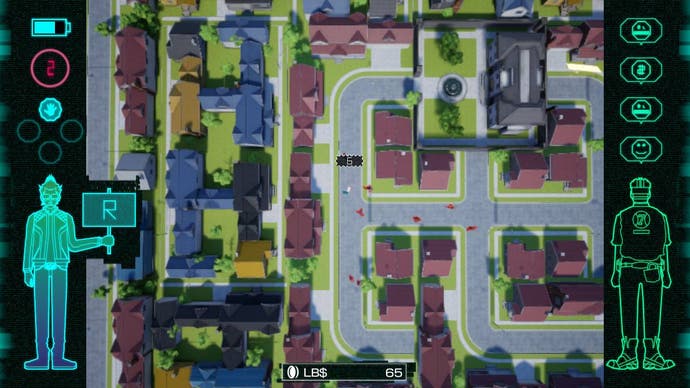
It does, at least, feel responsive, the action keeping to 60fps, and there are knowing links to the original No More Heroes - the moveset is superficially similar, and again you're asked to shake the Joy-Con to recharge your energy in an act of air onanism (and if you don't want to suffer the same fate as Pee Wee Herman and get caught in public, the motion controls are entirely optional here). You can level up, pick up collectables and work against bigger mobs (and the more enemies there are onscreen the more enjoyable it is, even if it never puts up anything approaching a challenge), but it's all so insubstantial you wonder what's the point.
Skill chips, found throughout the course of the game and named after various Gundam, give you access to special moves, while a second player can drop in or out at any point for co-op, and big bosses punctuate each level to imbue some sort of spectacle. It's not entirely irredeemable, but there's not enough meat to justify the length at which the action runs, and the style that once excused No More Heroes' flaws just isn't there. Travis Strikes Again is all over the place, its attempt to mimic 32-bit styles feeling half-hearted and leading to a gaudy clash of the old and the new. It's a grab-bag of references without any substance or reason - a spin on 90s games whose title typeface mimics a 2016 TV show that leant on 80s nostalgia.
If it's a parody of older games, the truth is they were rarely this bad. Travis Strikes Again ends up looking - and playing - like a Net Yaroze game made in a hungover fug. Towards its end, as the fourth walls keep tumbling away, it does find some redemption - and any spark that's there is in that final mess - but it's too little, and too late, and so mired in self-reference it feels like Suda is wanking into the void. Is Travis Strikes Again meant to be this hollow? No More Heroes pulled the same trick at various points, with its knowingly empty open world and its mindless mini-games, but there's so little offered in return this time around it feels like the joke's on us. The real truth is, though, the joke isn't funny anymore.
